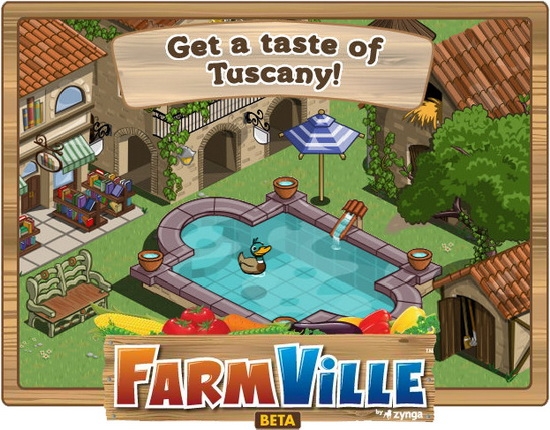Stanford Daily称:斯坦福商学院毕业生领跑社交游戏领域
虽然很多斯坦福大学的学生们并不曾真的下过田,但他们却都有良田百亩、鸡鸭成群。这一切都源于一款名为FarmVille的社交游戏,在这个游戏中玩家们能够尽情享受管理农场的乐趣。这类游戏与斯坦福大学的学子们息息相关。
FarmVille和Mafia Wars、Tap Tap Revenge等都属于现在一种正在蓬勃发展的网络应用,即我们俗称的“社交游戏”。之所以起这么一个名字是因为这是一种人们在Facebook、MySpace等社交网站或iPhone等移动电话设备上与朋友一起玩的游戏。现在很多开发这类游戏的智囊团都是斯坦福商学院(Graduate School of Business)的毕业生,其中有些都还参与了Zynga Game Network Inc或Tapulous Inc等公司的成立和管理。
在过去的几年里,社交游戏由于其自身的娱乐媒介和社交互动双重作用受到了玩家的热烈欢迎。斯坦福商学院的电子商务教授Haim Mendelson表示,在社交游戏中,往往只需短短的5分钟就可以和多年未见的朋友进行交流。这种简单而有趣的联系方式是十分强大的。
Zynga公司的现任运营总监William“Bing”Gordon也是斯坦福商学院的毕业生,在2009年创作了最热门的社交游戏FarmVille。现在这款游戏有6200多万月活跃用户。目前在Facebook、iPhone和Android等平台多可以畅玩FarmVille。在游戏中,玩家可以经营农场,收获庄稼或贩卖农产品后可以获得游戏货币。
现在正冲刺24级的FarmVille玩家Justine DiPrete认为,社交游戏的精妙之处在于刺激玩家和朋友们相互竞争。比如,你的朋友27级,有17头牛,那么这就刺激了你玩游戏的动力。
虽然开发社交游戏的制作成本和技术要求都不高(据Mendelson估计,一个人只需5000美元就可以在3周内制作完成一款社交游戏),但其作为社交媒介的本质明显有利于那些规模更大、经验更丰富的公司。
像Zynga这类大型公司资金丰裕,可以在Facebook网站上进行广告宣传。举个例子,zynga公司有高质量的分析能力,他们可以了解到玩家对游戏的反馈,并及时进行更新。其实,开发一款游戏的门槛并不高,但开发一款成功的游戏却十分艰难。”
虽然要开发一款受欢迎的游戏很难,但毫无疑问一旦成功,其回报是相当大的,FarmVille就是一个最好的例子。在游戏中加入高级工具或特殊庄稼等虚拟商品,有些玩家就会愿意为此买单。尽管只有大约3%的社交游戏玩家愿意在社交游戏中花点现实货币,但据Mendelson的消息称,虚拟商品在2009年到2010年的销售额已经达到30亿美元。
另外,有些游戏公司还可以得到大额的经济补偿。同样毕业自斯坦福商学院的Andrew Lacy和Bart Decrem联合创办的Tapulous社交游戏公司,开发了一系列名为Tap Tap Revenge的音乐社交游戏。在这款游戏中,玩家要和朋友们比试看看谁才是iPhone最好的键盘手。据称今年1月迪士尼公司以3500万美元收购了这家公司。
当FarmVille和Tap Tap Revenge还专注于网络的时候,新一轮的社交媒介开始进军现实世界。另外的毕业生Tristan Walker已经在LBS领域前行,Walker是Foursquare的商业发展总监,通过这款应用,用户们能够利用手机等设备相互交流各种餐厅、商店信息。
对此,Tristan Walker说“我们希望刺激用户们探索自己所在的城市。有些人想知道自己朋友的住处,有些人想到别的地方去、而有些人则想要知道关于自己城市的趣闻。”
据Tristan Walker预想,将来的Foursquare等应用会据需要满足玩家的不同需求。比如,如果有纽约玩家每天早上7点习惯光顾咖啡厅,那么当他出差到旧金山,早上7点想喝咖啡时,Foursquare就会向他介绍当地的咖啡厅。(本文为游戏邦/gamerboom.com编译)
Though not every Stanford student has been on a farm, many proudly own hundreds of acres of farmland and herds of animals. They do this through the social game FarmVille, an online platform that enables users to simulate the experience of owning and tending a farm — a game that, like many others in the genre, has its roots at Stanford.
FarmVille belongs to a growing category of online applications including Mafia Wars and Tap Tap Revenge referred to as “social games,” so called because people play them with friends on social networks such as Facebook and MySpace, as well as cellular devices like the iPhone. Much of the brainpower behind these games comes from alumni of the Graduate School of Business, many of whom are involved in the founding and management of tech companies such as Zynga Game Network Inc. and Tapulous Inc.
Social games have grown tremendously in popularity over the last few years due to their duality as a form of entertainment and a platform for social interaction, explained Haim Mendelson, professor of electronic business at the Graduate School of Business.
“You can communicate with people you haven’t seen in two years, but only invest five minutes in [the game],” he said. “An easy, ubiquitous and fun connection is very powerful.”
Zynga, whose current operating director is William “Bing” Gordon, MBA ’78, created the most popular social game, FarmVille, in 2009. Now boasting over 62 million users, FarmVille is available as an application on Facebook and on the iPhone and Android; in FarmVille, players run farms and earn “coins” by harvesting crops or selling animal products.
Justine DiPrete ’11 recalls a time when she was an avid user of FarmVille, at one point progressing up to Level 24 of the game.
“The best part about social games is the competitive aspect with your friends,” she said. “When your friends are on Level 27 and have 17 cows, then that gives you motivation to play.”
Though social games are relatively easy and cheap to create — Mendelson estimated one could be built in three weeks with $5,000 — the intrinsic challenges of social media give larger, more experienced companies an advantage.
“Large companies like Zynga have a lot of money and can advertise on Facebook, for example,” he said. “They have high quality analytical ability, so they can track how users are responding to the game and adapt quickly. The barrier to developing a game is low, but the barrier to developing a successful game is high.”
Developing that rare successful game, however, can pay off big time. FarmVille, for example, offers virtual goods such as superior tools and special crops to users willing to pay a small monetary fee. Though only around 3 percent of social gamers opt to spend real money on these virtual perks, the bottom line remains favorable for the companies. According to Mendelson, sales of virtual goods reached about $3 billion worldwide in the 2009-2010 fiscal year.
In addition, some gaming companies are bought out and receive generous financial compensation. Tapulous, founded by Andrew Lacy MBA ’05 and Bart Decrem JD ’92, created a series of games called Tap Tap Revenge that pits users against their friends to determine who could most skillfully tap buttons on their iPhones. On July 1, Walt Disney Co. paid a reported $35 million to buy the company.
While Farmville and Tap Tap Revenge are based exclusively online, the next wave of social media may ground itself more in the real world. Tristan Walker MBA ’10 is business development director for Foursquare, an application that allows users to “check in” at venues using mobile devices to receive points and exchange tips about restaurants, stores and other attractions.
“We’re trying to get people to explore their city and incentivizing them to do so,” Walker said. “Some people want to know where their friends are, some want to unlock deals they couldn’t get elsewhere, and some want to get interesting tips about their city.”
In the future, Walker predicts, applications will continuously tailor themselves to the specific needs of the consumer. He offers one such development that he envisions for Foursquare: “Say you check into a coffee shop in New York City at 7 a.m. everyday,” Walker said. “If you take a flight to San Francisco and it’s 7 in the morning, we could help introduce you to cool coffee shops there as well.”(Source:Stanforddaily)










































 闽公网安备35020302001549号
闽公网安备35020302001549号